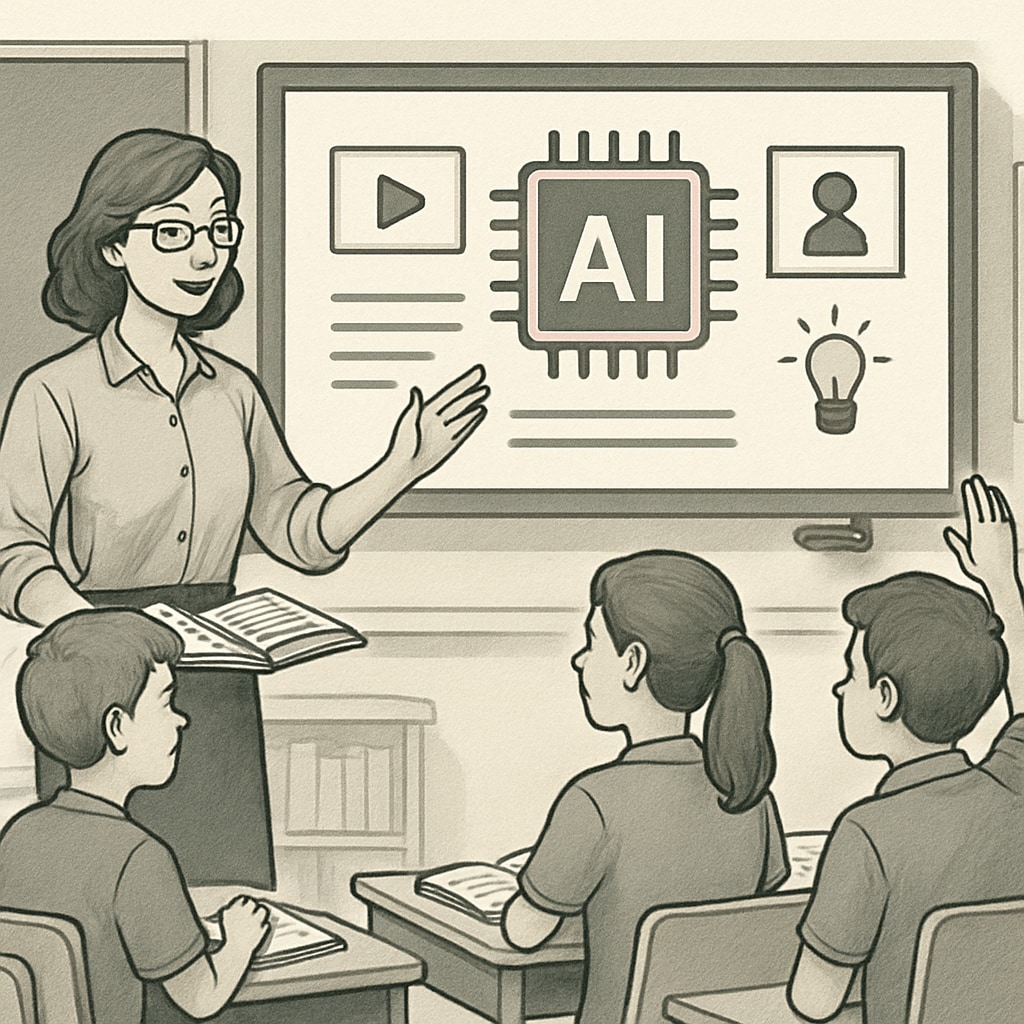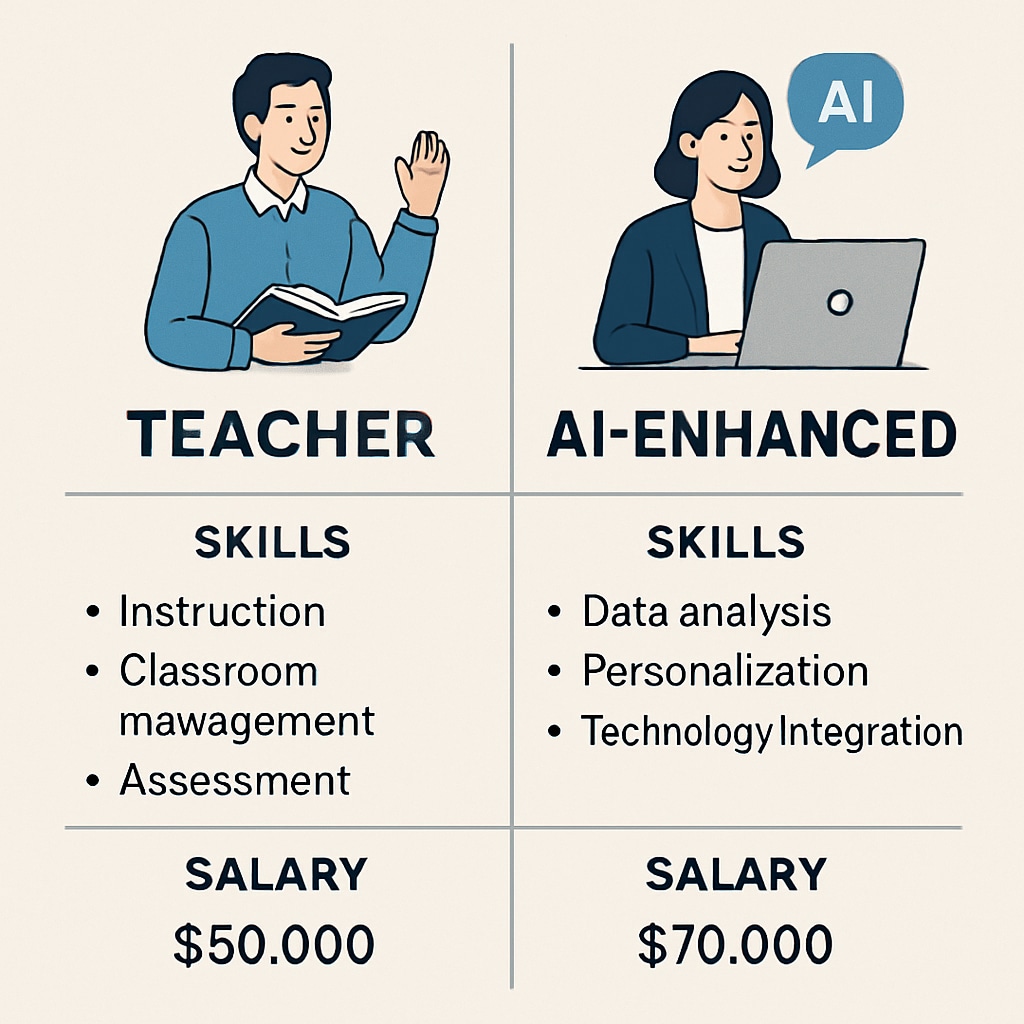With the rapid advancement of AI education applications, the teaching profession is undergoing significant transformations. Questions about teacher value, professional status, and the necessity of technical skills have become central to the debate about whether artificial intelligence empowers educators or poses a threat to their careers. As AI systems increasingly automate tasks such as grading, personalized learning, and even student engagement, the role of human teachers is being redefined. This article explores the impact of these technological changes and discusses the balance between the essential human aspects of teaching and the opportunities brought by AI.
The Evolving Role of Teachers in the Age of AI
Artificial intelligence is revolutionizing the education sector, but what does it mean for teachers? Traditionally, teachers have been the cornerstone of education, providing not only knowledge but also emotional support, mentorship, and moral guidance. However, AI tools such as adaptive learning platforms and automated grading systems are now taking over many of the routine tasks that were once part of a teacher’s daily responsibilities.
For example, platforms like Khan Academy or AI tutors like ChatGPT can deliver personalized lessons to students at scale, often with impressive accuracy. While this improves efficiency, it raises the question: if machines can teach, grade, and even offer feedback, what unique value do human teachers bring to the table?

One answer lies in emotional intelligence and the irreplaceable human connection teachers provide. Machines may adapt to learning styles, but they cannot fully replicate empathy, cultural understanding, or the ability to inspire students at a personal level. Therefore, as AI reshapes the teaching profession, educators must focus on enhancing their uniquely human skills while also embracing technical competencies.
AI Education Applications and Their Impact on Teacher Salaries
The economic implications of AI in education are also worth examining. With AI taking on more responsibilities, there is a risk that the perceived value of teachers could decrease, potentially leading to salary stagnation or even cuts. In some cases, schools and educational institutions might view AI as a cost-saving alternative to hiring additional staff, thereby limiting career opportunities for educators.
On the other hand, the integration of AI could lead to new roles for teachers, such as AI curriculum designers, data analysts, or technology facilitators. These positions require advanced technical skills, which could command higher salaries and redefine career trajectories in education. For instance, educators who specialize in leveraging AI tools effectively might find themselves in high demand, particularly in tech-savvy schools or institutions focused on innovative learning models.

To adapt to these shifts, professional development programs must focus on equipping teachers with the knowledge and skills to work alongside AI. This includes training in data interpretation, ethical considerations in AI use, and integrating technology into lesson plans. By doing so, teachers can ensure their relevance in an AI-driven educational landscape.
Balancing Technology and Humanity in Education
While AI education applications offer significant advantages, they also raise ethical questions about the role of technology in shaping young minds. Education is not solely about imparting knowledge; it is about fostering critical thinking, creativity, and social skills. These elements require the human touch, which technology cannot replicate.
As a result, the future of education lies in a hybrid model where AI and human teachers collaborate. Teachers can use AI to handle repetitive tasks, such as grading or administrative work, freeing them to focus on more meaningful interactions with students. For example, AI could analyze student performance data to identify learning gaps, while teachers design interventions tailored to individual needs. Such a partnership ensures that technology enhances, rather than replaces, the art of teaching.
In conclusion, while the rise of AI poses challenges to the traditional teaching profession, it also presents opportunities for growth and innovation. By embracing technical skills and emphasizing their unique human value, teachers can navigate this transformative period with confidence.
Readability guidance: This article maintains short paragraphs and incorporates lists to summarize key points. Transition words, such as “however,” “therefore,” and “for example,” are used to ensure smooth flow. Passive voice and long sentences are minimized to enhance clarity and readability.


